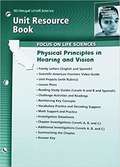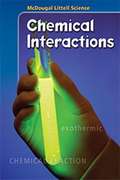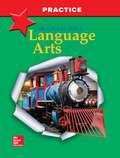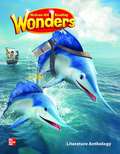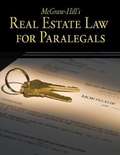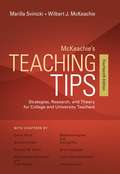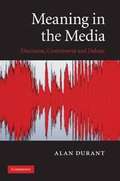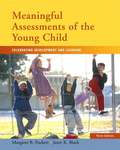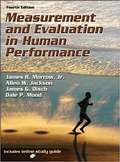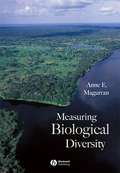- Table View
- List View
Mcdougal Littell Science California: Physical Principles in Hearing and Vision Unit Resource Book, Grade 7, Life Science
by McDougal LittelMcdougal Littell Science: Chemical Interactions (Grades 6-8)
by Rita Ann Calvo Kenneth Cutler James TrefilIn the simplest terms, physical science is the study of what things are made of and how they change. It combines the studies of both physics and chemistry. Physics is the science of matter, energy, and forces. It includes the study of topics such as motion, light, and electricity and magnetism. Chemistry is the study of the structure and properties of matter, and it especially focuses on how substances change into different substances.
Mcdougal, Littell Literature And Language: Blue Level
by Robert S. BooneThis textbook contains plenty of reading materials of great literature-fiction, non-fiction, poetry, drama, etc.
Mcgraw - Hill Science (Grade 4, Texas edition)
by Lucy Daniel Joanne Vasquez Jay Hackett Richard Moyer Pamela Stryker Prentice BaptisteScientists study books and articles to find out facts. They also ask questions. They always try to test their ideas for themselves.
Mcgraw-Hill Language Arts (Grade #3)
by McGraw-HillYour ideas are the heart of your writing. They can also be called the main idea or theme. They must be clearly presented. Your writing should include details that keep the reader's attention and show what is really important about your topic.
Mcgraw-Hill Language Arts (Grade #3)
by McGraw-HillPractice pages provide exercises to accompany lessons presented in McGRAW-HILL LANGUAGE ARTS. At-home activities are provided on every page. Practice pages can be used as students work through the unit.
Mcgraw-Hill Reading Wonders Grade 2 CCSS Reading/Language Arts
by Donald R. Bear Janice A. Dole Diane August Jana Echevarría [et al.]Literature textbook
Mcgraw-Hill's Real Estate Law for Paralegals
by Lisa Schaffer Andrew WieteckiReal Estate Law for Paralegalspresents students with a clear, easy-to-understand, and exciting text in which they will learn about real property, personal property, and all of the facets inherent in real estate. The text includes a chapter dedicated solely to real estate closings. The students have access to numerous exercises, cases, and hands-on learning assignments (including sample forms) covering topics ranging from "Regulations and Encumbrances" to "Recording Statutes and Examinations. " The Paralegal Supersite Site
Mckeachie's Teaching Tips (Fourteenth Edition)
by Wilbert Mckeachie Marilla SvinickiThis indispensable handbook provides helpful strategies for dealing with both the everyday challenges of university teaching and those that arise in efforts to maximize learning for every student. The suggested strategies are supported by research and adaptable to specific classroom situations. Rather than suggest a "set of recipes" to be followed mechanically, the book gives instructors the tools they need to deal with the ever-changing dynamics of teaching and learning.
Me encantaría tener un cachorro (¡Arriba la Lectura!, Level Q #31)
by Sharon Parsons¿Te gustaría cuidar un cachorro? Es una gran responsabilidad. Tendrás que aprender a entrenarlo desde su primer año de vida. Aquí encontrarás consejos para el cuidado de los cachorros. ¡Y también verás por qué un perro puede llegar a ser tu mejor amigo! NIMAC-sourced textbook
Me llamo Amelia Earhart (¡Arriba la Lectura!, Read Aloud Module 10 #3)
by Brad Meltzer Christopher EliopoulosNIMAC-sourced textbook
Me pregunto … Por qué estornudamos y otras cosas (¡Arriba la Lectura!, Level N #90)
by Maureen Mecozzi Lisa Chesters¿Te has preguntado por qué estornudas o por qué te da hipo? Para averiguarlo, lee estas preguntas y respuestas sobre el cuerpo humano. NIMAC-sourced textbook
Meaning in the Media
by Alan DurantMeaning in the Media addresses the issue of how we should respond to competing claims about meaning put forward in confrontations between people or organisations in highly charged circumstances such as bitter public controversies and expensive legal disputes. Alan Durant draws attention to the pervasiveness and significance of such meaning-related disputes in the media, investigating how their 'meaning' dimension is best described and explained. Through his analysis of deception, distortion, bias, false advertising, offensiveness and other kinds of communicative behaviour that trigger interpretive disputes, Durant shows that we can understand both meaning and media better if we focus in new ways on moments in discourse when the apparently continuous flow of understanding and agreement breaks down. This lively and contemporary volume will be invaluable to students and teachers of linguistics, media studies, journalism and law.
Meaningful Assessments of the Young Child: Celebrating Development and Learning
by Margaret Puckett Janet BlackThis book is not for the “tired and timid” but for those committed professionals who wish to think through a plan that is coherent, cohesive, learner- and family-focused, and work through the development of a defensible (reliable and valid) authentic assessment system. Discusses emerging research in the area of brain development research and its implication for assessment practices. Provides information on the “standards movement” and how these standards can have either a negative or positive impact on developmental goals. Adds a developmental continuum as an appendix to help teachers focus on emerging development rather than on perceived deficits in children. Provides an added chapter on portfolio systems. Places more emphasis on the discussions of diversity and inclusion. For educators and school administrators.
Measurement and Evaluation in Human Performance
by Jr. Dale P. Mood James R. Morrow Allen W. Jackson James G. DischMeasurement and Evaluation in Human Performance, Fourth Edition, paves the way for students and professionals to identify and solve human performance problems in the areas of kinesiology, physical education, health, and fitness. Focusing on the concepts of reliability, objectivity, and validity, the text introduces students to tests and measurements and guides them through statistical decision making and accurate interpretation of data. Measurement and Evaluation in Human Performance, Fourth Edition, is designed with student learning in mind with its practical approach, easy-to-read style, and minimal mathematics. Like previous editions, the text combines introductory algebraic concepts with explanations of reliability and validity to assist students in developing the knowledge and tools to gather and analyze data for decision making. The fourth edition also features many upgrades: • An updated online study guide that incorporates more student activities, computer tasks, and quiz questions to help students comprehend the concepts • A realignment of chapters into four cohesive sections leading from background knowledge and basic statistical concepts to supportive theories and practical application • Greater use of Microsoft Excel to assist with statistical calculations, including an appendix of directions, screen captures, and templates for complex calculations • Inclusion of large sample data sets with each chapter’s online study guide content that help students review concepts and emphasize the value of computer skills in the field of measurement and evaluation • More information on physical activity assessment incorporated into all chapters • A new contributor who lends expertise to teachers and coaches in a chapter addressing performance-based assessment In addition to incorporating use of MS Excel, this edition continues to use Predictive Analysis Software (PASW), previously known as Statistical Package for the Social Sciences (SPSS). These computer applications provide students with the skills to quickly complete time-consuming and difficult calculations for large amounts of data.
Measuring Biological Diversity
by Anne E. MagurranThis accessible and timely book provides a comprehensive overview of how to measure biodiversity. The book highlights new developments, including innovative approaches to measuring taxonomic distinctness and estimating species richness, and evaluates these alongside traditional methods such as species abundance distributions, and diversity and evenness statistics. Helps the reader quantify and interpret patterns of ecological diversity, focusing on the measurement and estimation of species richness and abundance. Explores the concept of ecological diversity, bringing new perspectives to a field beset by contradictory views and advice.
Measuring Inequality: A Methodological Handbook
by Philip B. CoulterA social science handbook that comprehensively covers distribution in social science, inequality theory and the importance of distribution.
Measuring Up to Florida’s B.E.S.T. Mathematics Standards, Level E
by Ellen McPeek GlisanNIMAC-sourced textbook
Measuring Up to Florida’s B.E.S.T.: English Language Arts Standards, Level E
by Ellen McPeek GlisanNIMAC-sourced textbook
